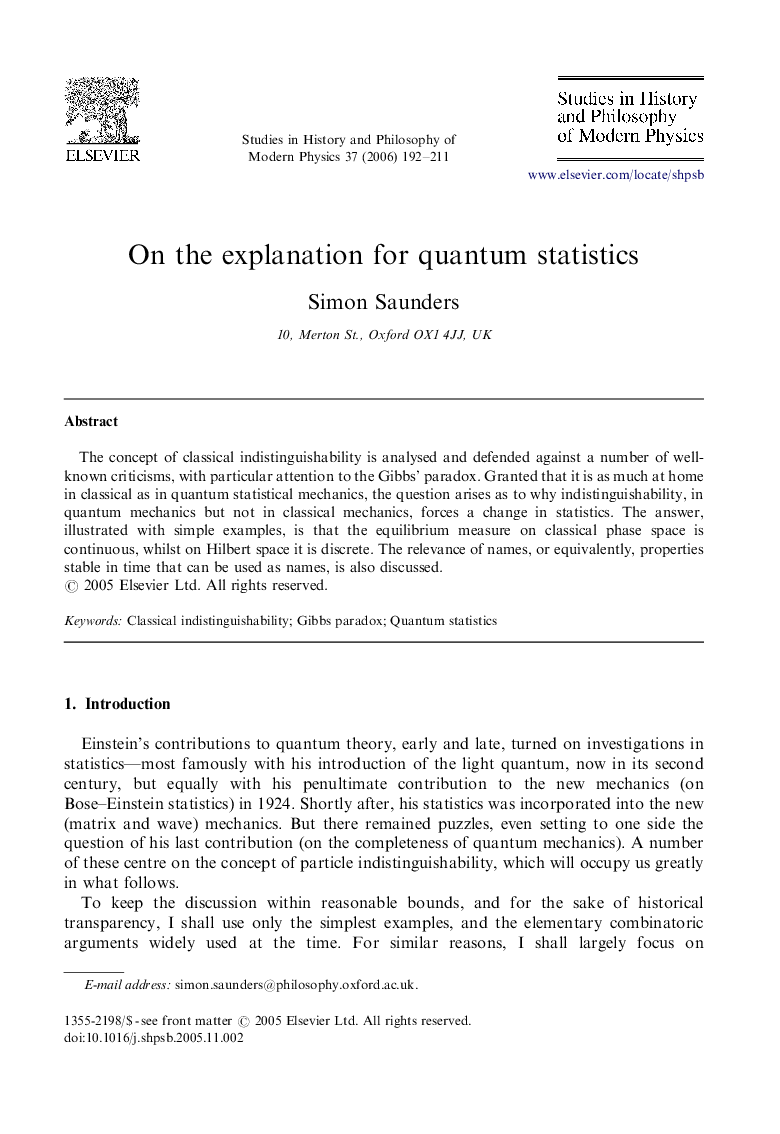| Article ID | Journal | Published Year | Pages | File Type |
|---|---|---|---|---|
| 1161487 | Studies in History and Philosophy of Science Part B: Studies in History and Philosophy of Modern Physics | 2006 | 20 Pages |
Abstract
The concept of classical indistinguishability is analysed and defended against a number of well-known criticisms, with particular attention to the Gibbs’ paradox. Granted that it is as much at home in classical as in quantum statistical mechanics, the question arises as to why indistinguishability, in quantum mechanics but not in classical mechanics, forces a change in statistics. The answer, illustrated with simple examples, is that the equilibrium measure on classical phase space is continuous, whilst on Hilbert space it is discrete. The relevance of names, or equivalently, properties stable in time that can be used as names, is also discussed.
Keywords
Related Topics
Physical Sciences and Engineering
Physics and Astronomy
Physics and Astronomy (General)
Authors
Simon Saunders,
